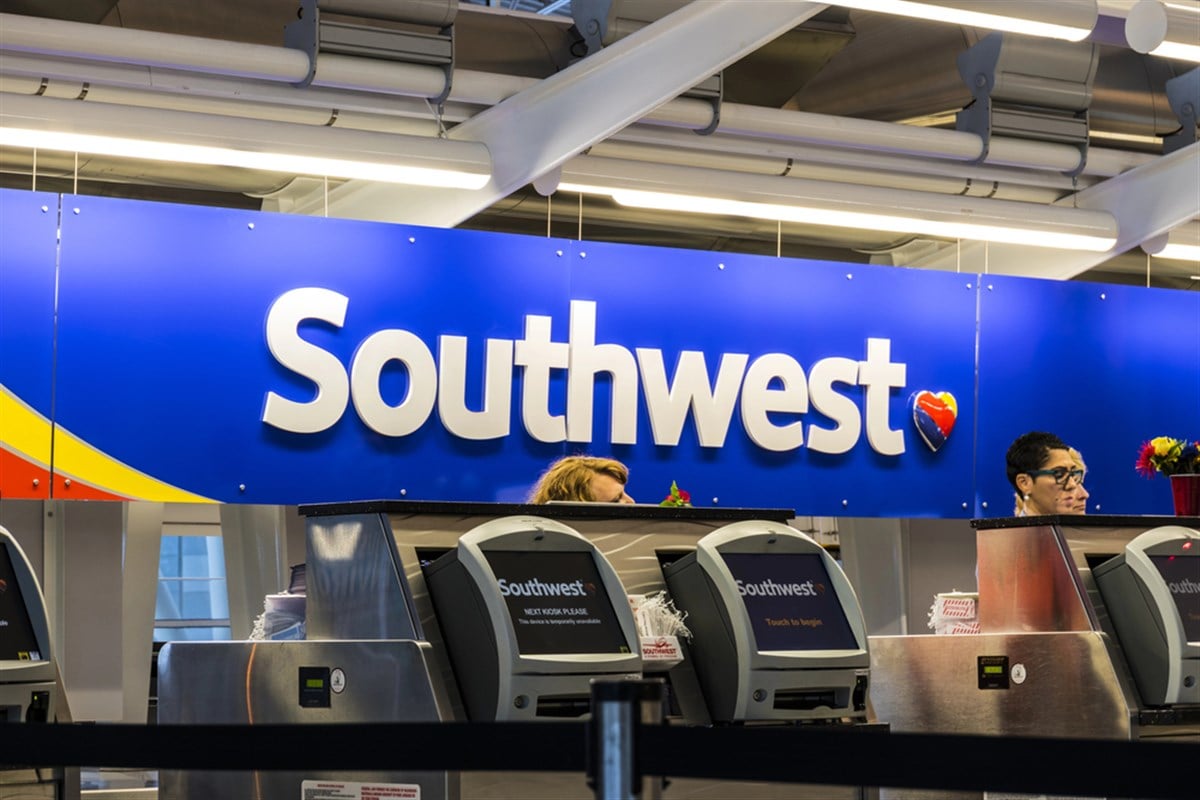
After a long year and a half of trading within a tight $27 to $35 channel roughly, shares of Southwest Airlines Co. (NYSE: LUV) have finally run into the catalyst investors were looking for to bring this company back to its former glory what some may even call its actual value.
Activist investor hedge fund Elliott Management has announced a $1.9 billion stake in Southwest Airlines stock, representing around 11% ownership. Elliott Management has a successful track record of activist investing, turning the story around for companies like NRG Energy Inc. (NYSE: NRG), The Goodyear Tire & Rubber Co. (NASDAQ: GT), and others. This gives it the pedigree to attempt another successful run with Southwest Airlines.
The stock has all the fundamental factors needed to make this happen. However, the 77% upside touted by the hedge fund is still questionable, as airline stocks aren’t typically known for such advances. So, before investors dig further into the hedge fund’s plan, here’s why that 77% upside goal is more feasible than meets the eye.
How Southwest Airlines Stock's Financial Cyclicality Could Lead to Massive Upside
History may not always repeat itself, but it often serves as a good comparison point for investors to understand what is feasible. The company’s financials (particularly pre-COVID) could be the key to unlocking a new rally for Southwest Airlines.
Before the peak pandemic months, Southwest reported net profit margins of up to 15%, with operating margins hovering around 16% and 20%, respectively. This type of profitability led to return on equity (ROE) rates of up to 32% in 2017, with the lowest return of 24% in 2019.
Today, net income margins look more like 2% to 4%, and ROE rates have tragically collapsed to only 3% to 5%. Of course, these trends severely affect the company’s earnings per share (EPS), one of the main drivers of stock valuation.
Investors need to know that despite these collapsing margins, the company still delivered significant revenue growth of 74.5% in 2021 and 50.8% in 2022. For the past 12 months, Southwest Airlines has grown its revenue to a first-quarter record of $6.3 billion, or a 10.9% increase over the year.
Knowing that the issue lies in margins, roughly 85% less than what they used to be, Elliot Management saw an opportunity to bring on a near doubling to the stock.
Unlocking True Value: Activist Plans for Southwest Airlines Stock
Elliott Management's first step in turning the fate of Southwest Airlines stock around is to change its leadership. Currently, Southwest Airlines CEO and chairman have yet to experience other airlines, limiting their ability to deal with the factors that led the company's margins to contract.
After the management mix is shuffled to include more experienced executives who can better adjust the company’s operating model to survive quick changes and scale in travel, the hedge fund will try to shift the new management’s focus into modernization and monetization.
Southwest Airlines’ outdated computer systems contributed to a few more issues at the company. In 2022, a holiday travel meltdown led Southwest to see a systems crash, resulting in hundreds of canceled flights and a rough couple of days for investors alike.
Investing some of the company’s strong free cash flow (operating cash flow minus capital expenditures) funds into modernization could enable better margins, not to mention scalability, by being able to adjust to quick market and travel changes.
Is the True Value of Southwest Airlines Stock Really That Much Higher?
Southwest Airlines' revenue expectations are set at $27.9 billion by the end of 2024 and $29.6 billion by the end of 2025.
Taking 2025’s projections and slapping a much better net income margin on them can give investors a sensible way to value this company, which could be higher than today’s consensus price target of only $29.9 a share, or 4.2% higher than where the stock trades today.
Using 2017’s net income margin of 17.6%, this revenue would turn into roughly $5.2 billion in net income, not far off from 2017's $3.3 billion, especially considering that the company has grown its revenue significantly since then.
Assuming there are no share buybacks, investors can divide this $5.2 billion net income by the current 598.5 million shares outstanding, or about $8.7 in EPS.
Taking today’s forward P/E ratio of 20.3x and being a bit more conservative by discounting it to 15x, investors can arrive at a valuation of ($8.7 * 15x) = $130.5 a share.
While that represents much more upside than Elliott's suggested 77%, this valuation could come from a couple of years of changing fundamentals, some of which are close to the company's previous achievements.













